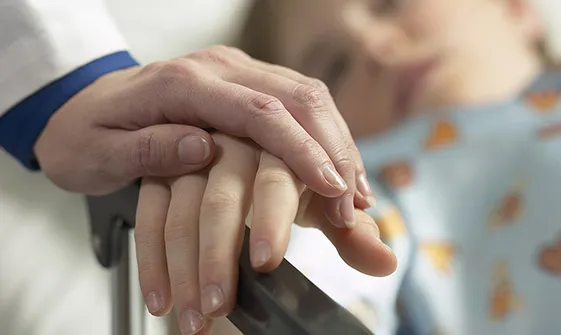
Your hospitalization
Classic Hospitalization
In conventional hospitalization, the El Yosr International Clinic in Sousse, Tunisia, receives, after agreement from the attending physician and the surgeon, patients for examinations, procedures or medical or surgical care and treatment that require more than 24 hours 'hospitalization.
The clinic is open 24 hours a day, every day of the week.

The Clinic has 20 beds for the hospitalization of the patient, in a calm environment, in spacious individual rooms which ensure the patient's tranquility, comfort and safety, equipped with:
Medical equipment including:
- A four-joint electric medical bed allowing reclines for patient comfort.
- One source of oxygen and one empty source.
- A nurse call trigger.
- Other equipment on medical prescription.
And everything you need for your rest and well-being:
- Individually regulated air conditioning.
- Toilet and shower cabinet.
- Telephone extension.
- Remote-controlled LCD television set with satellite reception allowing access to several channels.
- Patient rest chair.
THE STAGES OF HOSPITATION AT THE EL YOSR INTERNATIONAL CLINIC
Registration
Upon registration, at the admissions department, the patient (or his family) presents:
- a piece of identification; if the patient is a minor, an identity document from the guardian is requested on the understanding that the admission of a minor is pronounced, except in emergency, after agreement of the father, mother, legal guardian or judicial authority.
- the liaison letter from the attending physician or surgeon, prescriptions for current treatments before hospitalization, blood group card, examination results (laboratory, radio, scanner, MRI, ultrasound, ECG, etc.) and any other medical document related to the arrival of the patient.
- a payment agreement from the previously requested health insurance fund or the social security cover benefit card and possibly a document attesting to the benefit of additional health insurance.
- the form issued by the employer in the event of a work accident or occupational disease or any other administrative document justifying a particular situation.
Rules
A provision corresponding to the estimated cost of hospitalization if the patient does not benefit from social security coverage or has not been able to obtain the agreement for coverage by the health insurance fund.
In all cases, a deposit is required upon entry.
Since the administrative procedures must be carried out as quickly as possible by the patient or a relative, the patient is taken care of by the care team.
In an emergency, the patient is referred immediately to the nursing staff of the unit concerned; administrative procedures will follow.
For his comfort, the patient is required to
- Do not forget to bring your own linen and personal effects: toiletries, hand towels, nightgown or pajamas, dressing gown, slippers, disposable handkerchiefs, bed linen spare, box or case for dental or hearing prosthesis, if necessary. Bed linen is provided by the establishment. Personal laundry is not maintained.
- Do not bring valuables within the Establishment; the Clinic management can only be held responsible for objects entrusted to it against receipt.
Stay
The patient to be hospitalized is taken to his room. Everything is done to ensure that the stay takes place in the best conditions and to allow the patient to go through the moment of his hospitalization in serenity:
1- A medical and paramedical team ensures the smooth running of care throughout the stay:
- Before the operation, the nurse gathers the patient's administrative and medical file. She prepares it according to the rules and with a premedication prescribed by the doctor.
- After the operation, the patient remains in the recovery room for some time under the supervision of anesthetists. Then he is brought back by a stretcher bearer to the bedroom and installed in his bed with the help of the nurse.
- The anesthetists-resuscitators ensure post-operative follow-up in collaboration with the surgeon.
2- Beyond areas directly related to their care, patients are supervised by:
- a hotel and technical team whose vocation is to provide them with comfort, hygiene and safety, by inquiring about their well-being (hygiene of the premises, hygienic and dietetic catering, laundry and equipment maintenance, comfort of rooms, preservation of their privacy and tranquility and respect for their privacy).
- and by an administrative staff who sees to the proper organization of their reception and the services offered to them at each stage of their care by providing them with relevant, efficient and appropriate information for each situation.
3- The meals served to the patient three times a day meet hygienic and dietetic conditions. They are adapted to the state of health of the patients.
4- Unless justified by the patient's condition, visits are authorized every day from 10 a.m. to 8 p.m. and must be of short duration. The number of visitors per patient is limited to two people at a time. The visit is prohibited for children under ten years old. Patients hospitalized in intensive care receive visits only with medical authorization. In this case, visitors must wear appropriate clothing provided by the Establishment.
5- The patient may be accompanied by a loved one. For reasons of security and discretion, accompaniment is possible in the patient's room after the agreement of the doctor (or nurse).
- In single room only.
- By registering at reception.
- By invoicing the daily support package on the patient's discharge bill.
The Clinic can allow the person authorized to accompany the patient to share his meals; all you have to do is register at the reception; the costs are recorded and entered on the patient's bill.
Output
End of stay
The exit is decided after medical advice. However, it can be done at the request of the patient himself against medical advice, after having been informed of the possible risks to which he is exposed; in this case, he is required to sign a waiver releasing the Establishment from any liability.
If the patient is a minor, the person responsible for him must be present for his discharge, provided with an identity document.
The staff in charge of care specifies the discharge time and provides the patient with:
- His medical letter written by the doctor.
- Imaging photographs, accompanied, if necessary, by a prescription and prescriptions for the management of home care.
- Depending on the case, a work stoppage, a consultation appointment ...
At the end of the stay, the attending physician receives a report on the hospitalization.
Administrative output
Departure is every day at 10 am at the latest; if the situation requires a waiting period, a space is reserved for this purpose.
Before leaving, the patient (or his family) must go to the admissions department to:
Close your administrative file.
- It is returned to the patient:
- an essential exit form for social security organizations.
- an invoice detailing the various services.
Pay the invoice.
Appreciation of the stay
In order to organize a follow-up of the quality of the services (reception, care, stay, information) provided to patients and to constantly improve them, the Establishment takes into account the observations that the patient wants to mention on the questionnaire -satisfaction given to him at the end of his stay.


